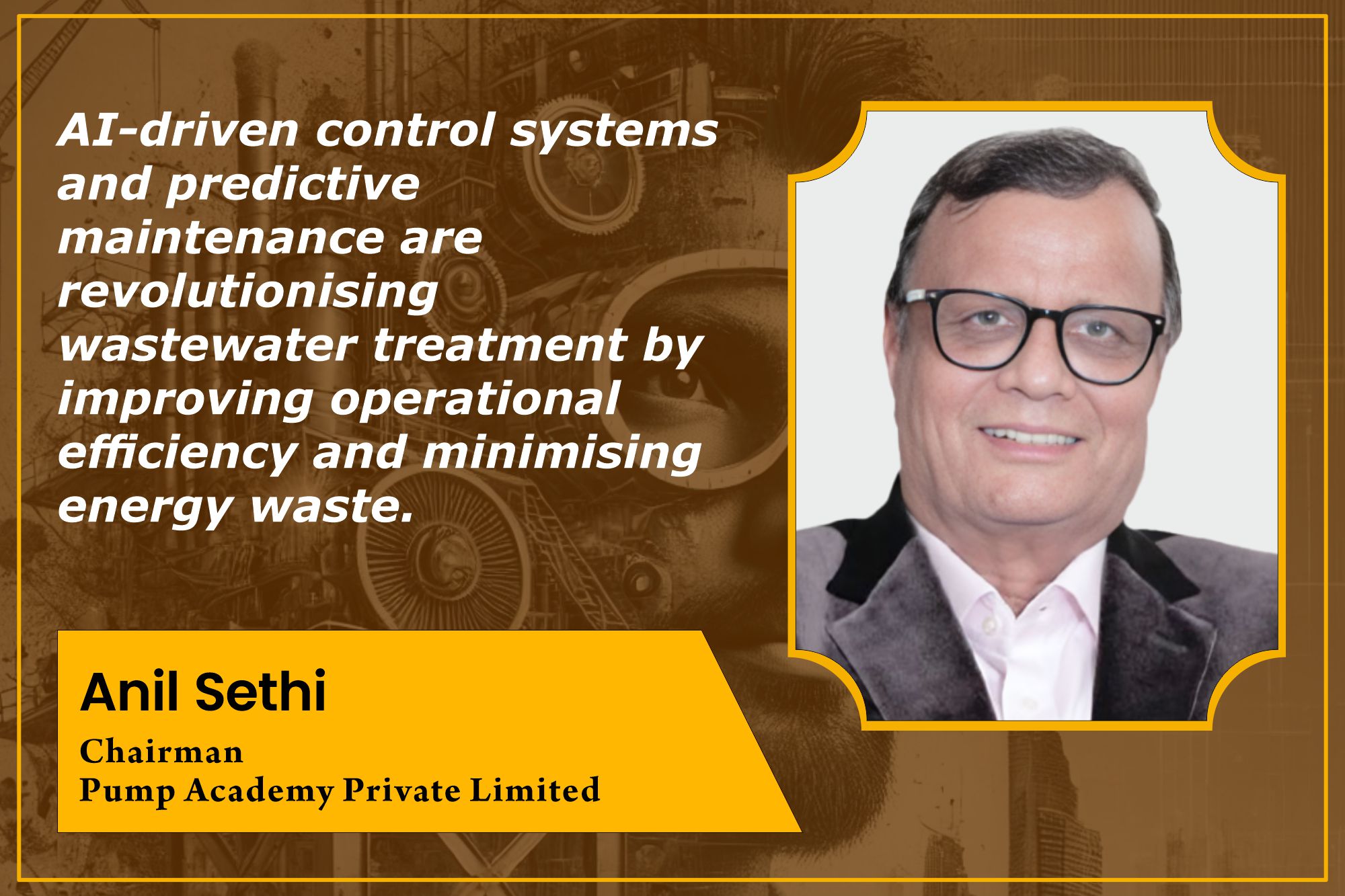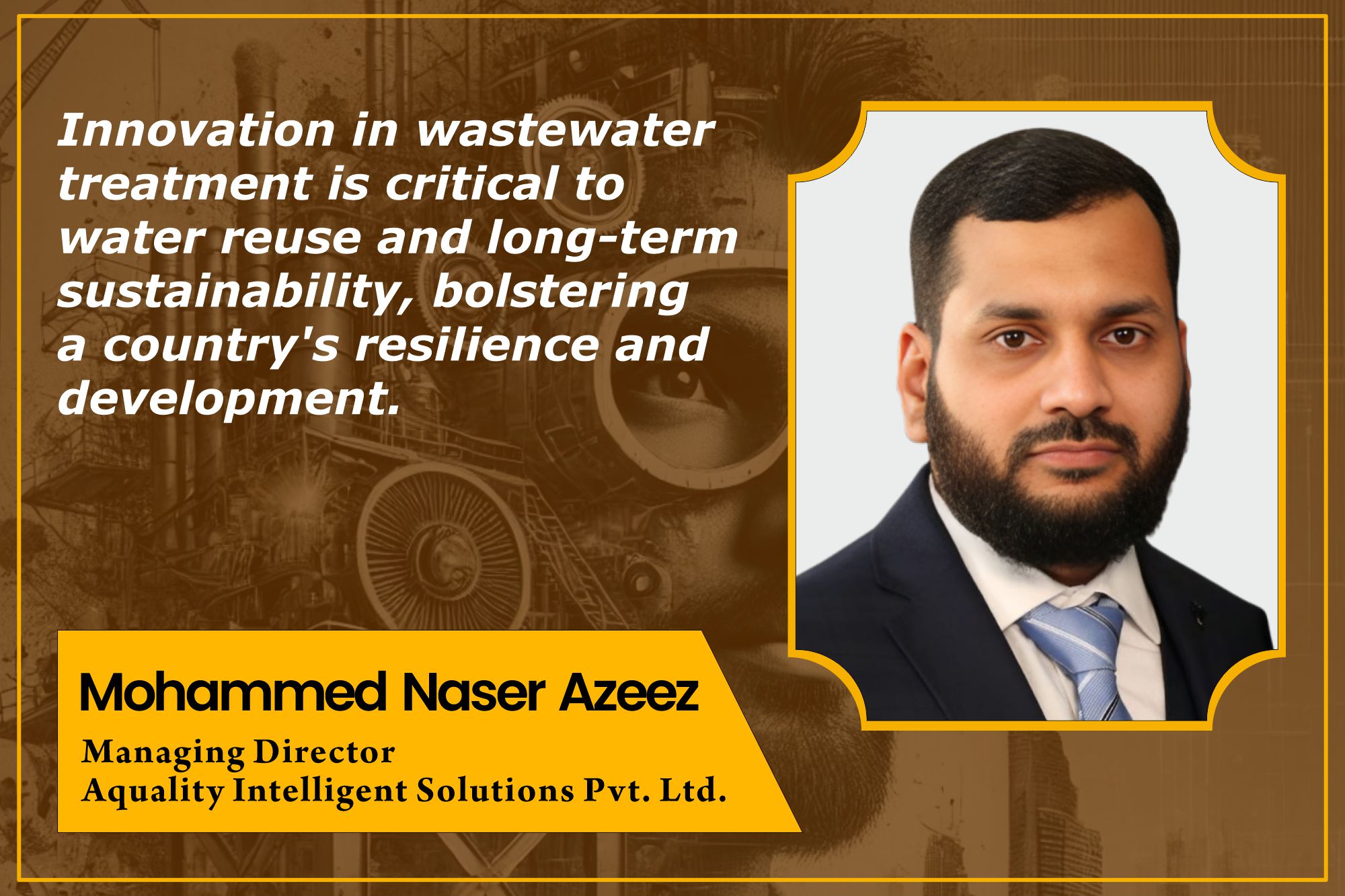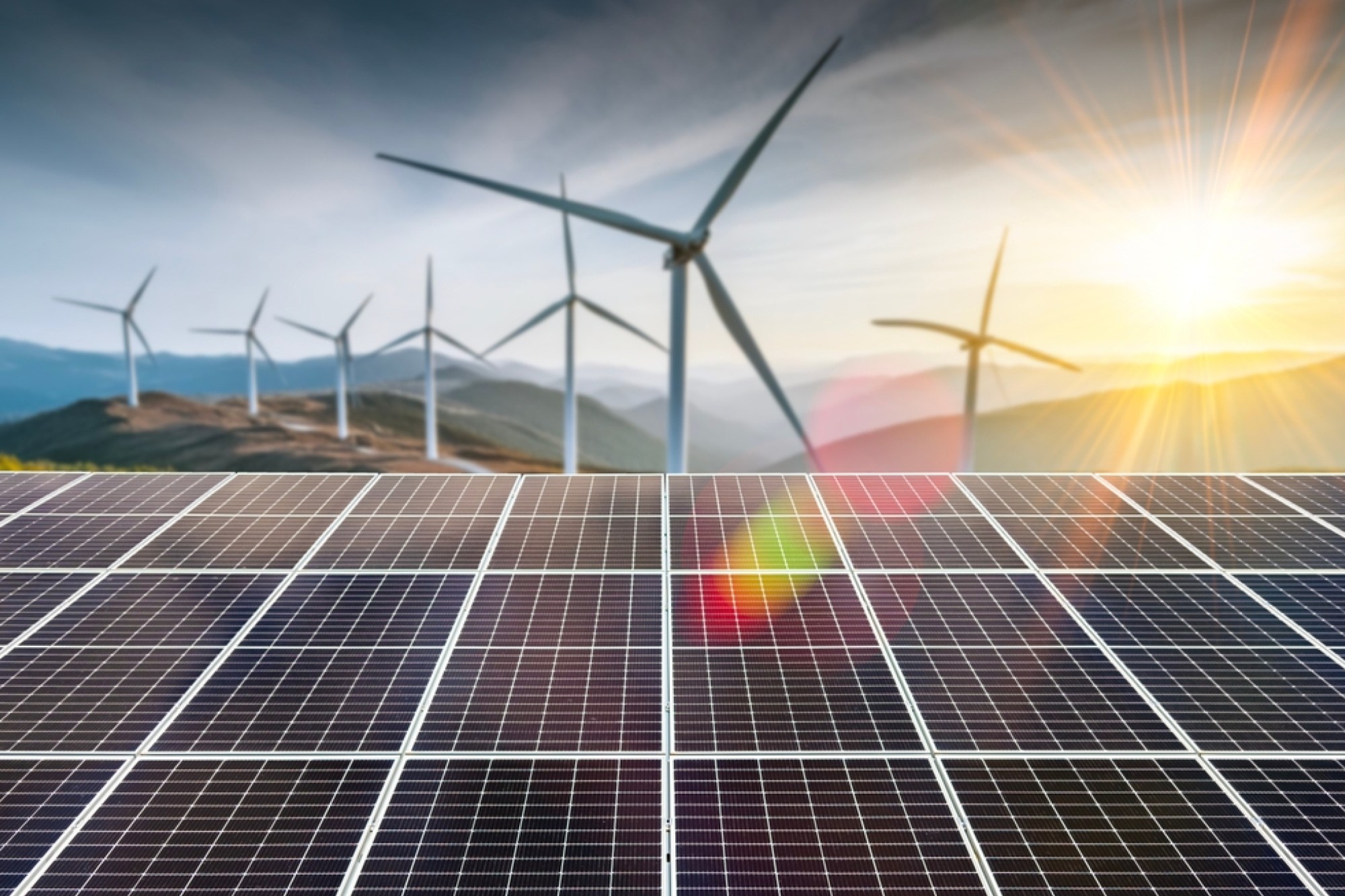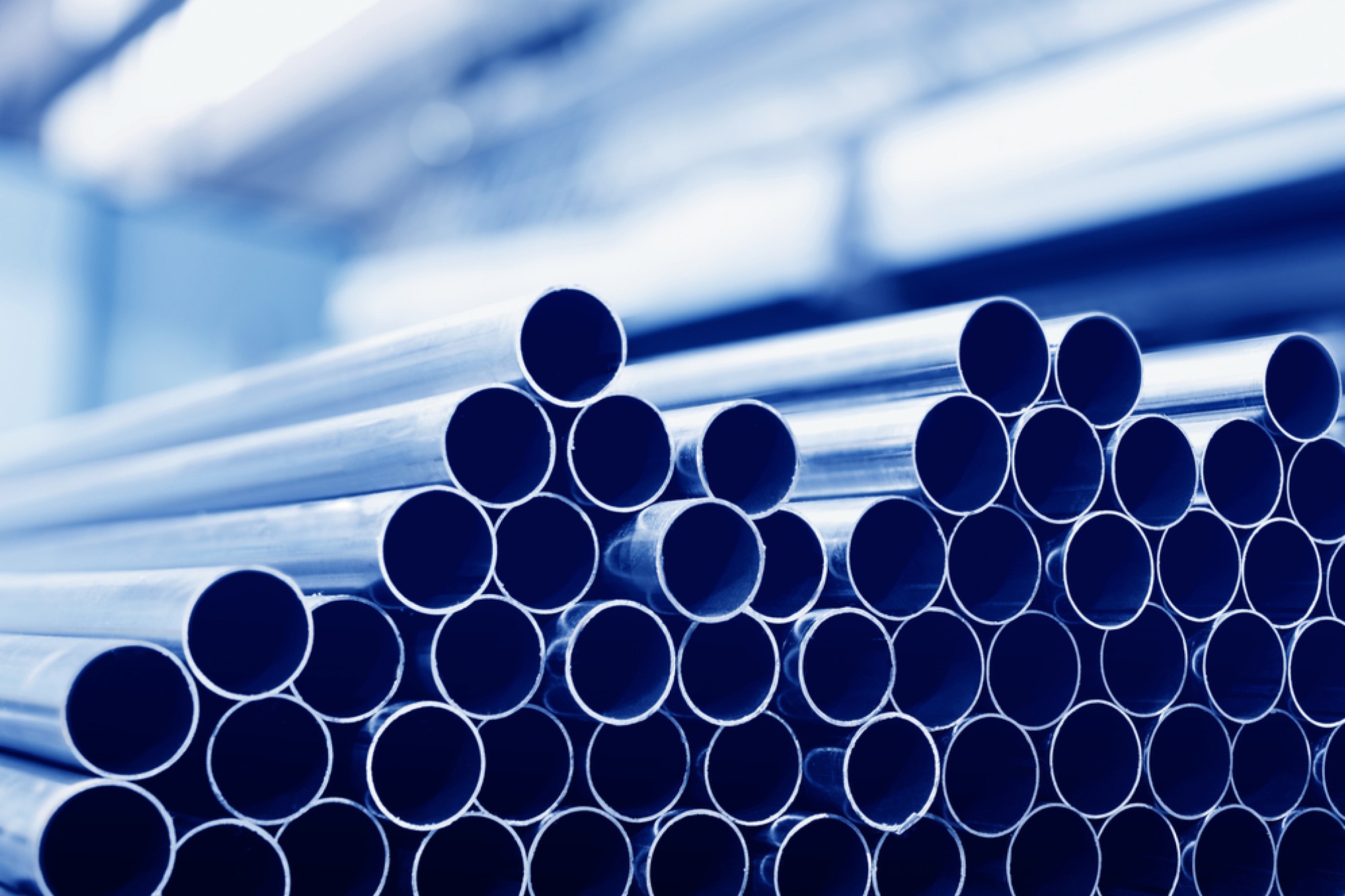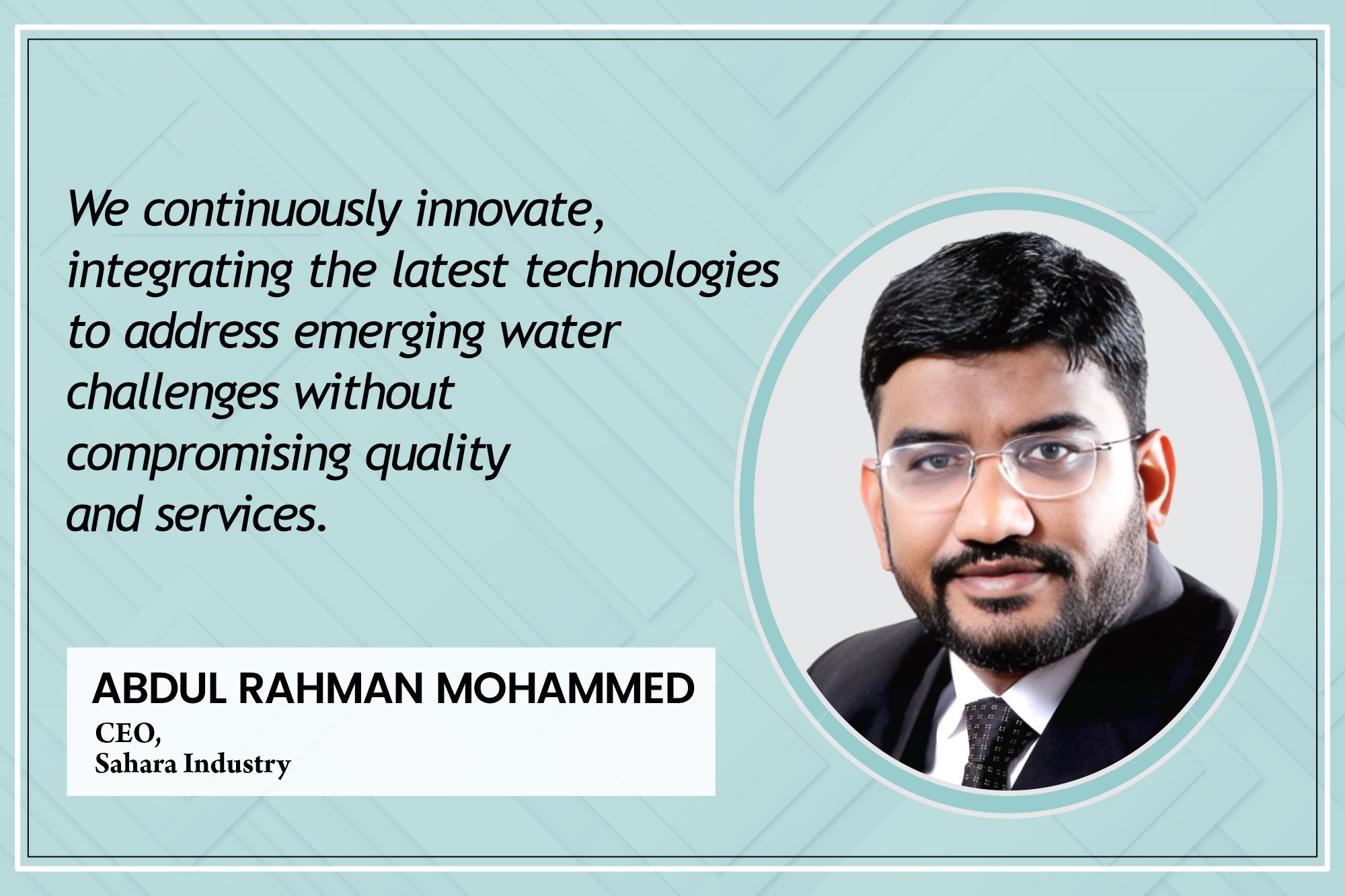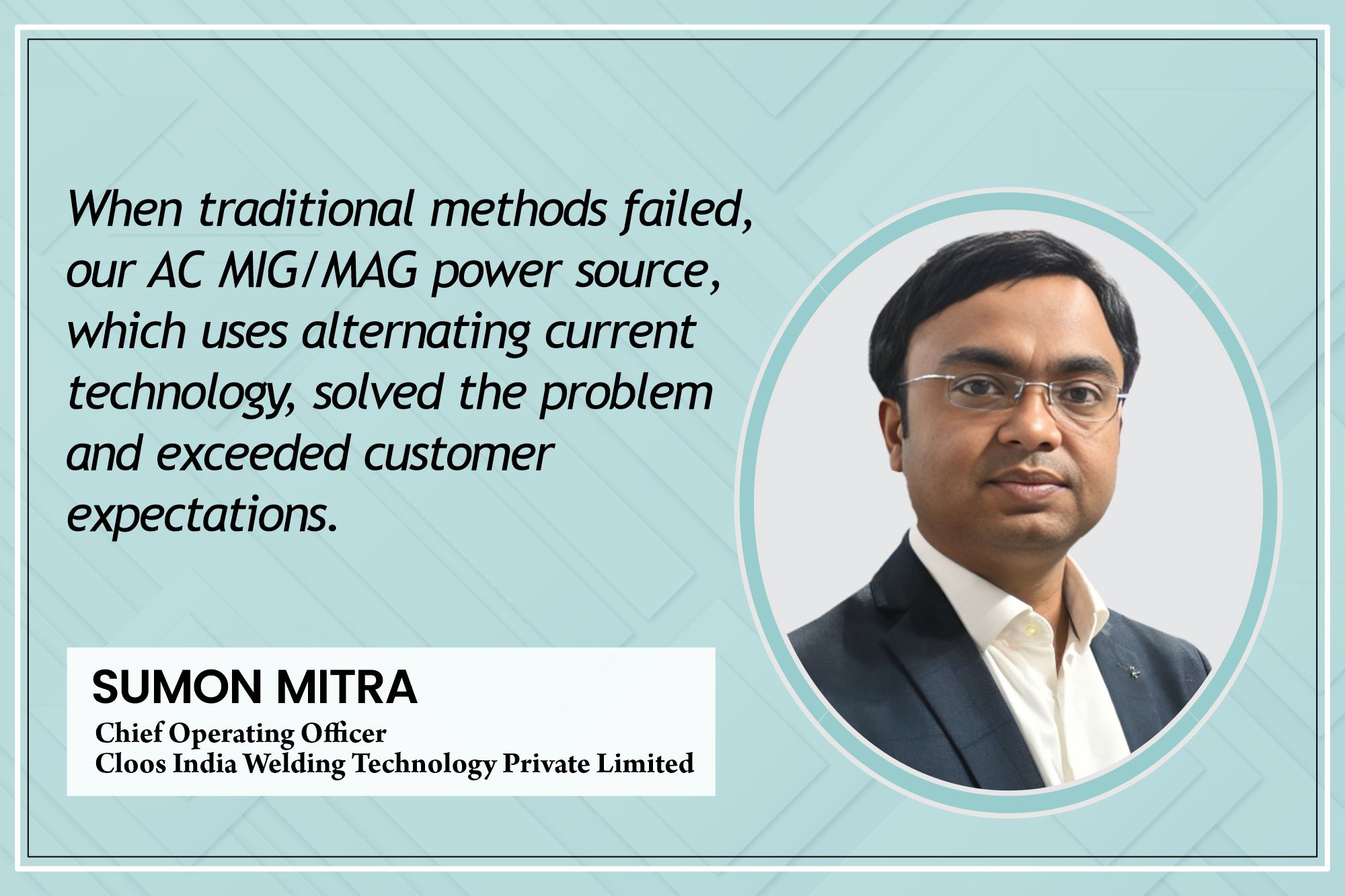Flowing forward to a cleaner future
By Edit Team | April 6, 2024 12:31 pm SHARE
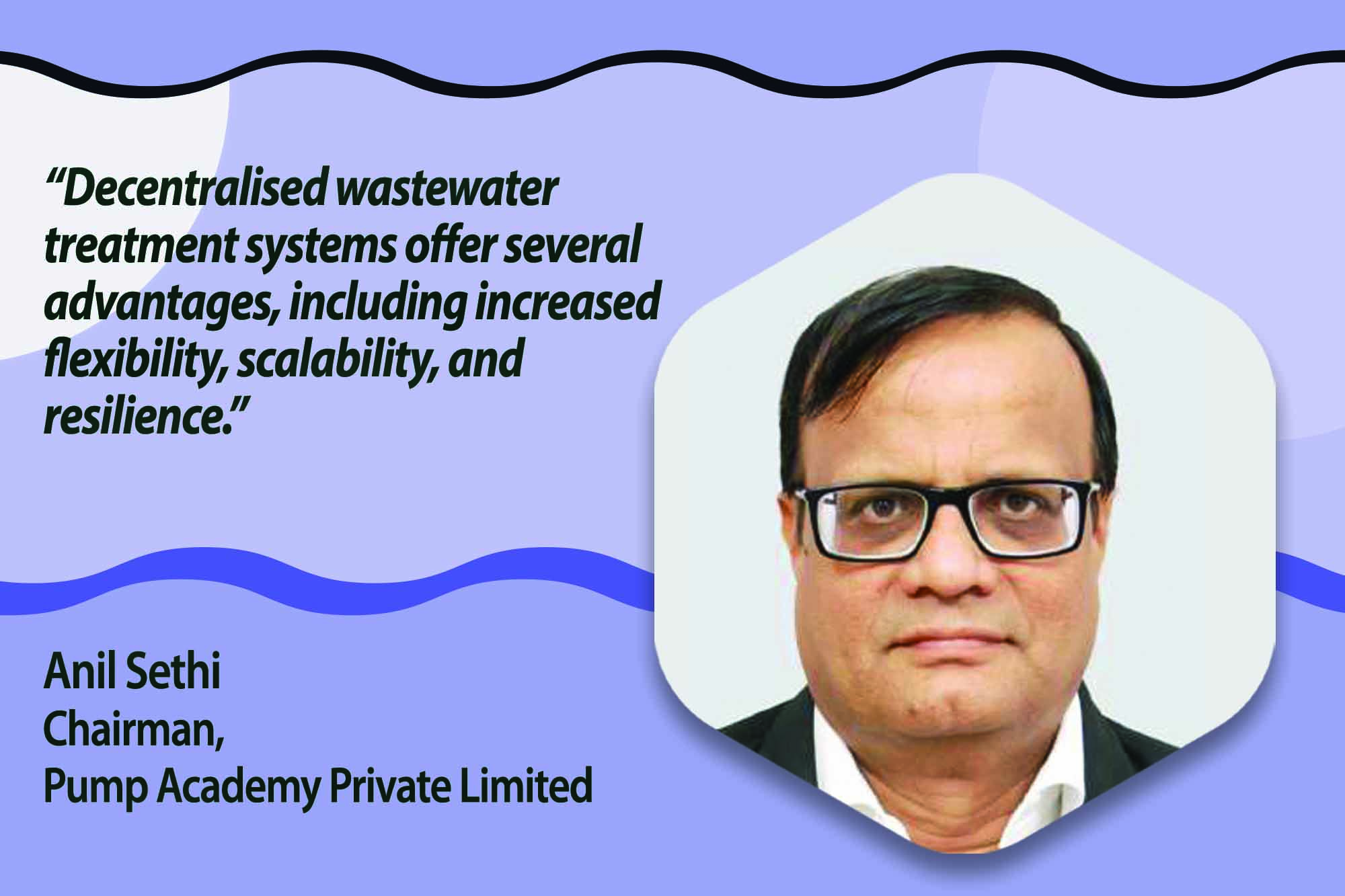
Water scarcity in India is a growing concern exacerbated by various factors, necessitating technological interventions. Advanced wastewater treatment technology addresses this challenge by enabling water reuse and minimising environmental impact.
How does wastewater treatment technology contribute to sustainability efforts, such as water reuse and minimising environmental impact?
Water scarcity in India is a pressing issue further intensified by population growth, rapid urbanisation, increasing pollution, and inefficient water management practices. Niti Aayog has highlighted the challenge of over 600 million people suffering from severe water stress. Addressing water scarcity in India requires comprehensive strategies, including technological intervention. Advanced wastewater treatment technology plays a crucial role in contributing to sustainability efforts by enabling water reuse and minimising environmental impact. The technology employs a multi-stage process that effectively removes contaminants, pollutants, and impurities from wastewater, rendering it suitable for reuse or safe discharge.
Advanced technology facilitates the reuse of wastewater to high standards, facilitating the reuse of this valuable resource for various purposes, such as irrigation, industrial processes, energy production, and even potable water after further treatment. This helps alleviate the strain on freshwater resources and promotes water conservation. The treatment effectively removes harmful substances, including heavy metals, organic compounds, and nutrients, preventing their release into water bodies. Technology supports energy-efficient processes, reducing the overall carbon emission associated with wastewater treatment.
How do we ensure compliance with regulations while focusing on efficiency and cost-effectiveness?
Ensuring compliance with stringent regulatory standards for wastewater treatment systems while maintaining efficiency and cost-effectiveness is a delicate balance that requires a multifaceted approach.
Staying updated with regulatory compliance and environmental regulations is essential for ensuring that treatment processes meet prescribed standards for wastewater quality and discharge limits. By remaining vigilant to regulatory changes, treatment facilities can adopt advanced technologies that ensure effective contaminant removal that safeguards environmental well-being and upholds legal obligations. By integrating these strategies, we balance regulatory compliance and efficient, cost-effective wastewater treatment operations.
Can you highlight any breakthrough innovations or technologies your company has developed to improve the efficiency and effectiveness of water management in India?
In water infrastructure, pumping stations are crucial for maintaining uninterrupted water delivery but consume a significant portion of global energy. Pump Academy Private Limited introduced iPUMPNET, an IIoT-based solution revolutionising pumping station management. iPUMPNET enhances energy efficiency, reduces carbon emissions, and offers real-time monitoring through a secure platform accessible via the website and mobile application. By leveraging data and analytics, iPUMPNET empowers the water industry to make informed decisions, paving the way for a more sustainable and cost-effective future for the water industry.
High power consumption in pumping systems poses a significant challenge in water infrastructure management. What measures can be implemented to effectively address this issue?
Pump systems account for 20 percent of the world’s electrical energy demand and 25 percent –50 percent of the electrical energy usage in specific applications. Pumps are the largest electricity user in the water industry and need proper energy efficiency optimisation. Improving energy efficiency and reducing unnecessary power expenses in pumping systems requires proactive measures such as routine maintenance, careful equipment selection, and system optimisation. Implementing advanced technological solutions like iPUMPNET offers a highly effective solution by utilising state-of-the-art technology to enhance pumping systems’ efficiency, reliability, and overall performance. With its innovative features, iPUMPNET can reduce energy consumption by as much as 25 percent, representing a significant advancement in the management and operation of pumping stations.
Why are pumping systems a critical component of wastewater treatment processes?
The pumping system is vital for wastewater treatment as it facilitates the movement of wastewater through various treatment processes. Pumps collect and transport raw sewage from residential, commercial, and industrial areas to the wastewater treatment plant, which undergoes purification to remove contaminants and pollutants. Pumps are utilised to transfer and dewater the sludge generated during treatment, facilitating further processing or disposal. It is also used to transfer the treated effluent to the disinfection stage and ultimately discharge the treated water back into the environment for reuse.
Without efficient pumping systems, the wastewater treatment process would be inefficient or even impossible leading to potential environmental pollution, public health risks, and operational inefficiencies. Proper selection, installation, and maintenance of pumping systems are crucial for ensuring wastewater treatment facilities’ effective and continuous operation.
Collaboration with other stakeholders, such as construction companies and urban planners, is essential for seamlessly integrating wastewater treatment solutions into infrastructure projects.
Wastewater treatment is an integral part of any infrastructure development, whether residential, commercial, or industrial. Effective collaboration between wastewater treatment companies and other stakeholders, such as construction companies and urban planners, ensures that wastewater treatment solutions are seamlessly integrated into infrastructure projects.
Construction companies and urban planners can provide valuable insights into the overall infrastructure layout, allowing wastewater treatment experts to seamlessly design and plan the treatment systems. This collaboration ensures that the treatment facilities are strategically located, with proper consideration for factors like population density, land availability, and future expansion plans. As urban populations swell and space becomes limited for extensive treatment facilities, integrating decentralised water and wastewater treatment plants becomes increasingly essential. Urban planners can contribute significantly by envisioning innovative solutions that optimise space and resources while meeting the growing demand for efficient wastewater treatment.
By fostering effective collaboration, infrastructure projects can be designed and executed with seamless integration of wastewater treatment solutions, ensuring environmental sustainability, regulatory compliance, and efficient resource utilisation.
What advantages do decentralised wastewater treatment systems offer, and how does your technology leverage these advantages?
Decentralised wastewater treatment systems offer advantages, including increased flexibility, scalability, and resilience. These systems are easier to implement in areas with limited land resources and can adapt to varying population densities and environmental conditions. They minimise the need for extensive sewer networks and centralised treatment plants, reducing construction costs and energy consumption and promoting local water reuse facilities. Resource recovery can be achieved with minimal resources and improved reuse facilities. Smart wastewater management means turning waste into wisdom, and challenges into solutions.
Our technology capitalises on these advantages by providing innovative pumping solutions tailored to decentralised wastewater treatment systems. Our technology ensures efficient operation and maintenance of the pumping system through advanced monitoring, control, and optimisation features. By leveraging real-time data analytics and predictive algorithms, we optimise treatment processes, minimise energy consumption, reduce carbon footprints, and enhance overall performance. This approach maximises the benefits of decentralised systems and contributes to sustainable water management practices and environmental conservation.
Cookie Consent
We use cookies to personalize your experience. By continuing to visit this website you agree to our Terms & Conditions, Privacy Policy and Cookie Policy.



